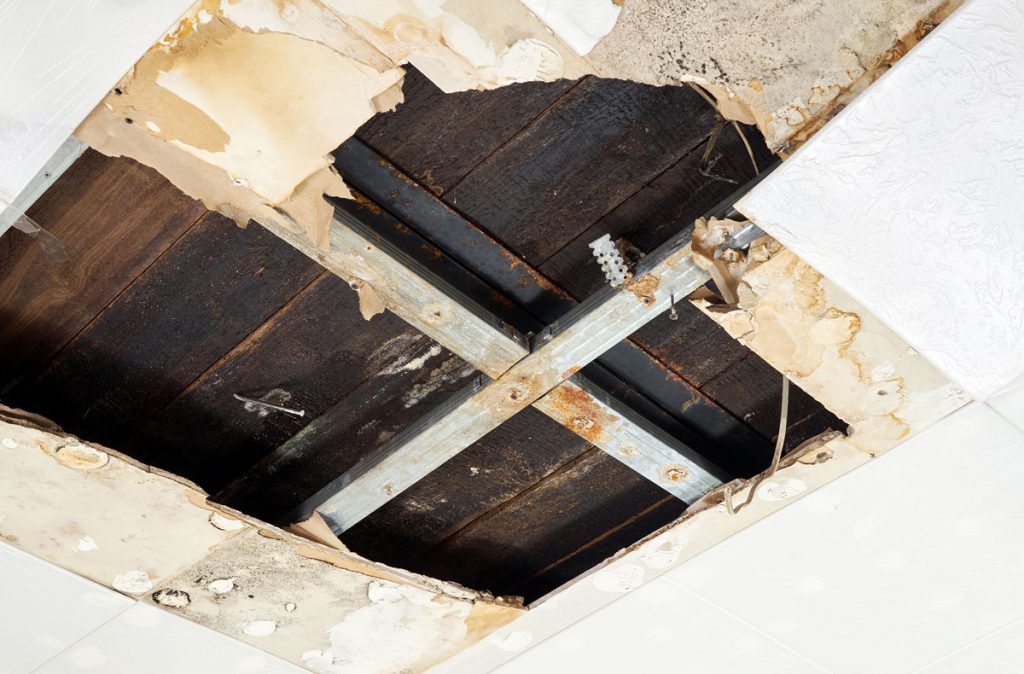So, you bought a great new house and did the responsible thing by buying homeowner's insurance coverage. A few months later, there are issues due to faulty construction issues. What now? Who's liable for the cost of fixing this? Will your homeowner's insurance cover construction defects or will you need to track down the contractor and sue them, or maybe their insurance? And how can you prepare yourself in advance to make sure you're covered in some way? We've researched this issue to bring you some answers.

Homeowners insurance does not cover damage to your home due to poor construction, but a builder's risk policy will help you protect it while it's under construction. This is a temporary type of insurance policy that becomes effective when purchased and ends when you're ready to take occupancy of the home. A builder's risk policy may cover damage from storms, fire, theft, and vandalism, but exclusions usually specifically state that faulty workmanship or materials are not covered.
There is no insurance policy you can purchase as a homeowner to protect your home from subpar construction. This is why it's so important to choose your contractor wisely, based on experience, reputation, and personal recommendations. Anything less could leave you dissatisfied.
Is poor workmanship covered by insurance?
No. Poor workmanship is not covered by your homeowner's policy. This responsibility ultimately falls upon the contractor who did the work. The good news is, however, that your homeowner's policy may cover damages to your belongings -- clothes, furniture, carpets -- that happen as a result.
Your contractor should also be bonded, however, and the bond will provide some protection. Bonds are issued to the contractor, usually by an insurance company. They're a type of credit that's extended to the contractor, and their purpose is to cover the homeowner, or obligee, in the event of fraud or poor workmanship, if the project is left uncompleted, or if the subcontractors don't get paid. You would file a claim with the surety company, who would then pay the claim. The contractor is then responsible for making restitution to his surety company.
There is also completed operations insurance that a contractor can purchase, that will cover damages if his work fails after the project is completed, though not all contractors carry it.
It's extremely important to hire contractors who are fully licensed and bonded for this very reason. If something goes wrong, is left unfinished, or isn't built to code, a bond is the only thing that actually stands between you and the ability to recoup your losses. Bonded contractors are bound by law to meet state and local building codes. This means, in part, that they're using appropriate materials, wiring your home correctly, and installing important features such as pipes and insulation in the proper manner. Work that's been completed, but is not to code, can cause delays when it fails inspection. Worse, it can make your home unsafe for occupancy.
Does general liability cover workmanship?
No. General liability covers injuries, accidents and damages that happen while the contractor is on the job. If he gets hurt, or if someone in your family gets hurt because of his actions, his liability insurance will cover medical expenses. If his equipment damages your driveway, then the cost to repair it is covered. His policy will also help pay his attorney and court fees that result from such incidences.
General liability insurance pertains more to what's actually happening while the contractor is on your property, and less to the results of his or her work. Situations that may be covered by a general liability policy include:
- Property damage caused by the contractor or his crew: This could include such things as damage to your well or septic if a contractor drives heavy equipment across it, damage to your home's structure if a subcontractor runs a piece of machinery into an exterior wall, or damage to walls and flooring if the contractor makes no effort to protect them during a renovation. If your property is damaged by someone working for the contractor, or by the contractor himself, while work is being performed on your home, damages may be covered.
- Personal injury: General liability may cover injury to you, your family, or other people who are on your property who are injured as a result of the contractor's work. If you trip over a board, or if a visiting neighbor falls through a step that hasn't been properly fastened down, the medical expenses may be covered by general liability.
How is general liability insurance calculated for contractors?
There are usually three different elements that combine to calculate general liability insurance for contractors:
- Classification: The Insurance Service Offices groups similar businesses together under the same categories or class codes. Aluminum Awning Erection and Drivers is a sample class code. Other businesses that do this same type of work may be classified under this same code because the workers face similar risks and may generate the same sort of claims.
- Rates: Each class code has assigned rates that will vary according to the amount of coverage chosen. These rates may vary from state-to-state as well, and from insurer to insurer.
- Exposure Base: This is often calculated based on expected sales or income.
All three factors combine to help generate the contractor's premium. Other factor play roles as well. Premiums will vary based upon the size of the policy and upon the reputation of the contractor who is buying the coverage. Contractors or companies who have a history of accident claims will pay more. Contractors whose jobs are more physical or expose them to higher risks will also pay more. For example, a contractor who routinely works on roofing will likely have higher premiums than one who keeps his feet on the ground.
How much is general liability insurance for a contractor?
The average cost of general liability insurance for a contractor runs between $700 and $1,200 per year for anywhere from $500,000 to $2 million in coverage. Prices vary according to state, the contractor's specialty, and other variables such as the contractor's previous accident or claim history. Payments are spread out over the year to make the coverage more affordable.
What kind of insurance should a contractor have?
Every contractor should have general liability insurance, but additional insurance is recommended as well. Completed operations insurance is important because it helps protect you should his workmanship fail in the future. He should carry worker's compensation insurance to protect members of his crew should they become ill or injured. He should have insurance on all company vehicles and heavy equipment, and he should be bonded. Several of these are required by law for your contractor to obtain his license, and for good reason. Having the right insurance protects him, his crew, and his work in the event that something goes wrong. It also protects you and your family should someone become injured, if the property becomes damaged, or if the contractor's work fails in the future.
Make sure you're only hiring contractors who can provide you with the proper paperwork pertaining to license and insurance. Asking that one simple question can save you both a lot of worry and headache throughout your construction or renovation project.



